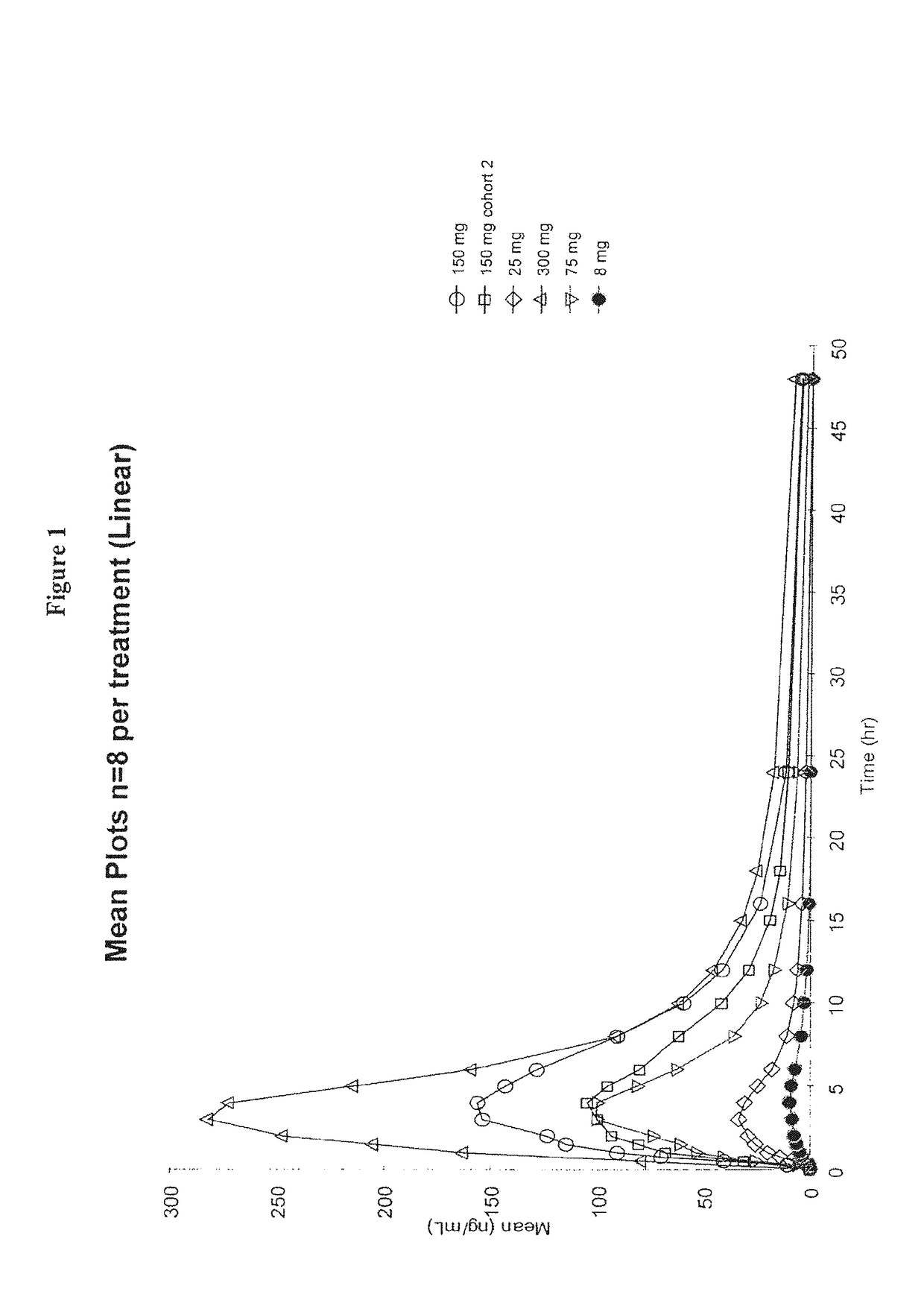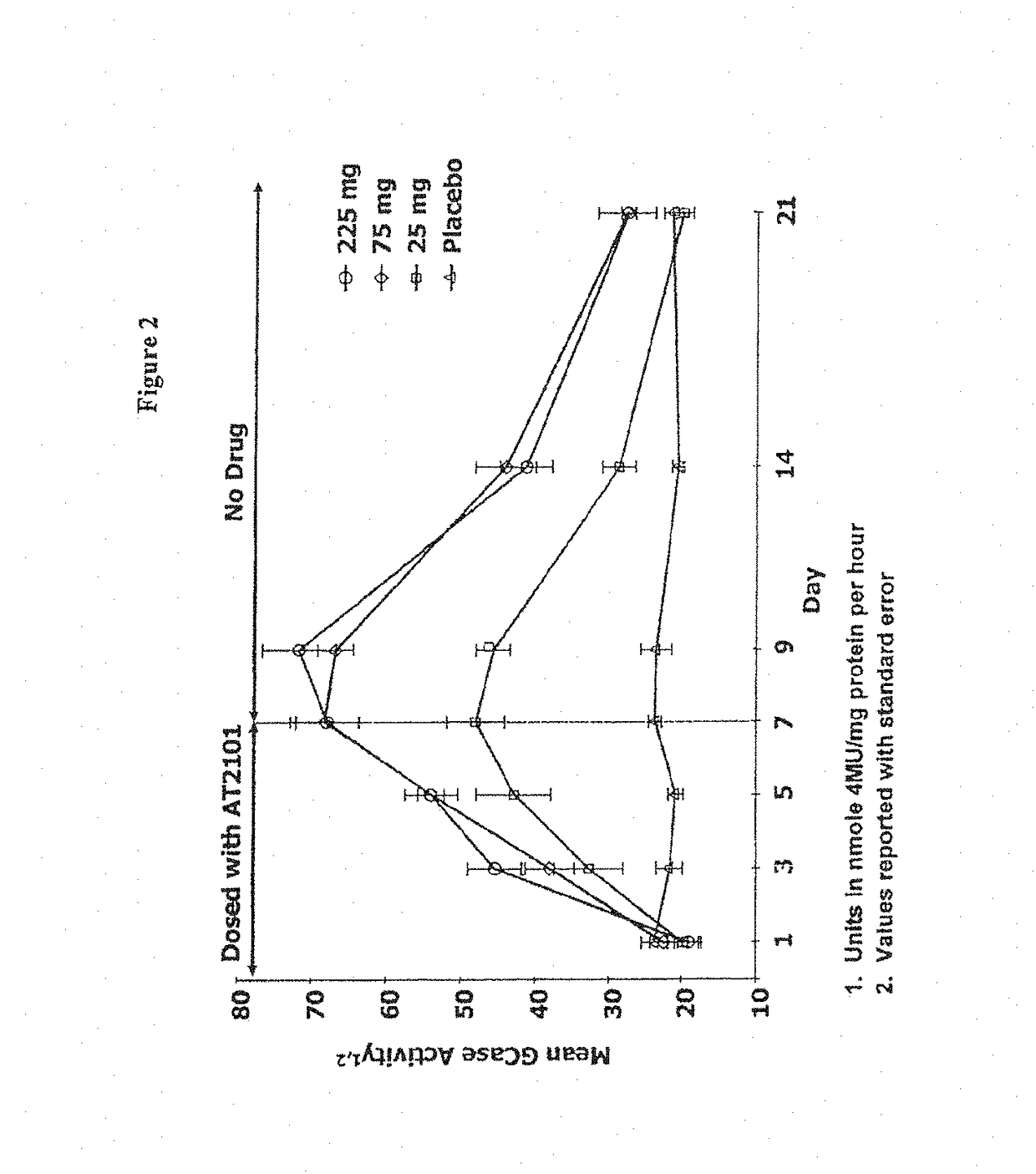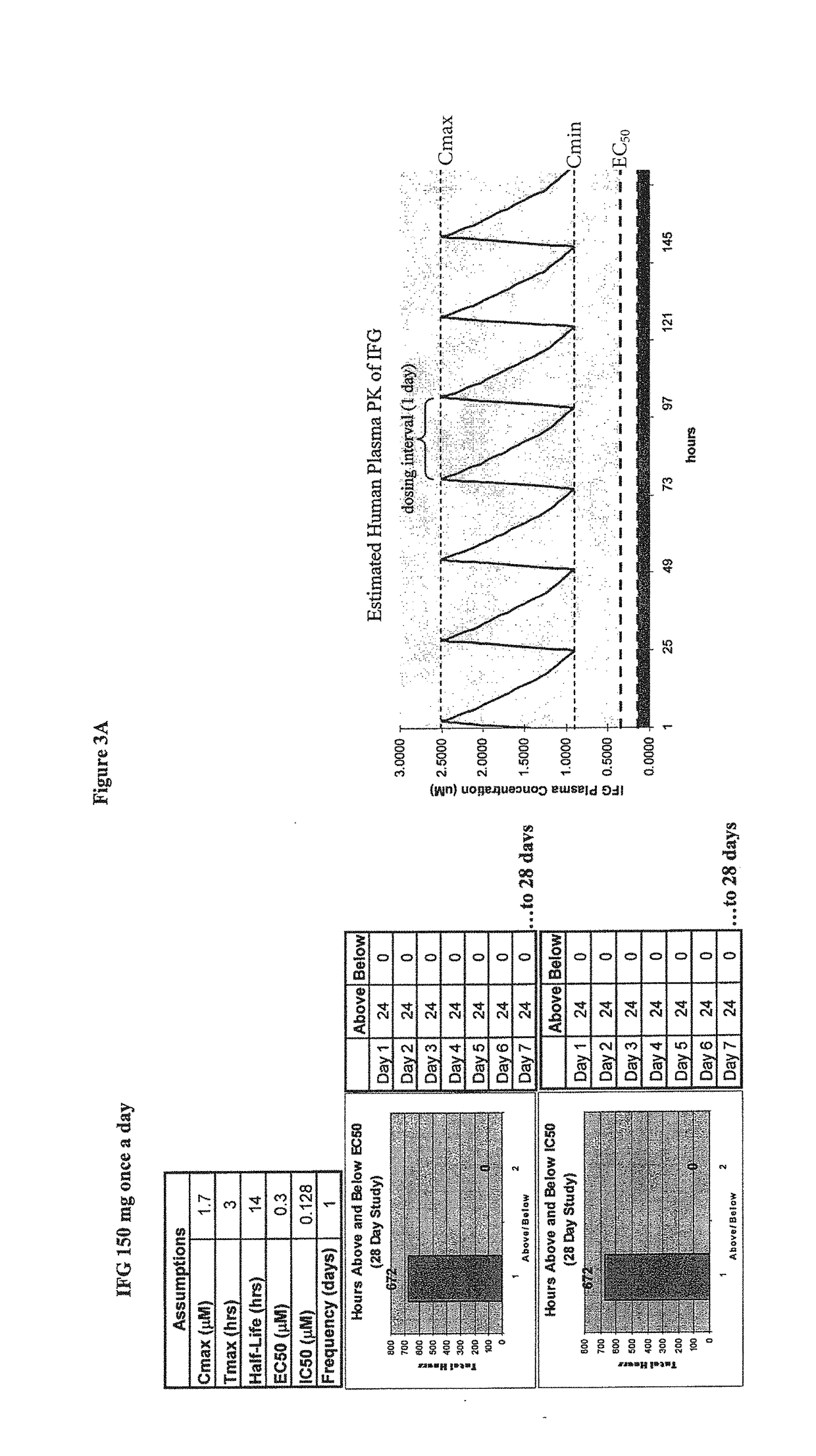Dosing Regimens for the Treatment of Lysosomal Storage Diseases Using Pharmacological Chaperones
a technology of lysosomal storage and dosing regimen, which is applied in the direction of medical preparations, heterocyclic compound active ingredients, organic active ingredients, etc., can solve the problems of protein level reduction, protein stability reduction, and protein folding loss
- Summary
- Abstract
- Description
- Claims
- Application Information
AI Technical Summary
Benefits of technology
Problems solved by technology
Method used
Image
Examples
example 1
gimen for the Treatment of Gaucher Disease Using Isofagomine Tartrate
[0231]The primary objective of the study is to evaluate the safety, tolerability and pharmacodynamics of two dose regimens of orally administered IFG tartrate in patients with type 1 GD. As indicated above, the prevalent mutation in Type 1 GD is N370S.
[0232]This will be a Phase 2, randomized, two dose group, open-label study to assess the safety and tolerability of isofagomine tartrate. The study will be conducted in treatment-naïve patients with type 1 GD between the ages of 18 and 65 years. Approximately 16 subjects will be enrolled.
[0233]This study will consist of a 7-day screening period, followed by randomization for qualifying subjects, a 24-week treatment period, which will be followed by a 14-day follow-up period.
[0234]Visits are scheduled at Day −7 (±3 days), Day 1 (±3 days), Day 7 (±3 days), Day 14 (±3 days), Day 28 (±3 days), Day 56 (±3 days), Day 84 (±3 days), Day 112 (±3 days), Day 140 (±3 days), Day 1...
example 2
gimen for the Treatment of Gaucher Disease Using Isofagomine Tartrate
[0262]The primary objective of the study is to evaluate the safety, tolerability and pharmacodynamics of one dose regimen of orally administered IFG tartrate in patients with type 1 GD.
[0263]This will be a Phase 2, randomized, two dose group, open-label study to assess the safety and tolerability of isofagomine tartrate. The study will be conducted in patients with type 1 GD between the ages of 18 and 65 years. Approximately 16 subjects will be enrolled.
[0264]Visits are scheduled at Day −7 (±3 days), Day 1 (±3 days), Day 7 (±3 days), Day 14 (±3 days), Day 28 (±3 days), Day 56 (±3 days), Day 84 (±3 days), Day 112 (±3 days), Day 140 (±3 days), Day 168 (±3 days) and Day 182 (±3 days). If a subject is withdrawn from the study after Day 1 and prior to study completion, the subject will be encouraged to undergo all procedures scheduled at Day 168 (visit 10).
[0265]This study will consist of a 7-day screening period, follo...
example 3
ation of Single Dose DGJ to Evaluate Safety, Tolerability and Pharmacokinetics, and Affect on α-Galatosidase a Enzymatic Activity
[0270]This example describes a randomized, double blind, placebo controlled Phase Ib study of twice daily oral doses of DGJ to evaluate the affects of DGJ on safety, tolerability, pharmacokinetics, and α-Galatosidase A (α-GAL) enzymantic activity in healthy volunteers.
[0271]Study Design and Duration.
[0272]This study was first-in-man, single-center, Phase Ib, randomized, double-blind, twice daily-dose, placebo controlled study to evaluate the safety, tolerability, pharmacokinetics, and α-GAL enzymantic activity affects of DGJ following oral administration. The study tested two groups of 8 subjects (6 active and 2 placebo) who received a twice daily-dose of 50 or 150 mg b.i.d. of DGJ or placebo administered orally for seven consecutive days, accompanied by a seven day follow up visit. Subjects were housed in the treatment facility from 14 hours prior to dosi...
PUM
 Login to View More
Login to View More Abstract
Description
Claims
Application Information
 Login to View More
Login to View More - R&D
- Intellectual Property
- Life Sciences
- Materials
- Tech Scout
- Unparalleled Data Quality
- Higher Quality Content
- 60% Fewer Hallucinations
Browse by: Latest US Patents, China's latest patents, Technical Efficacy Thesaurus, Application Domain, Technology Topic, Popular Technical Reports.
© 2025 PatSnap. All rights reserved.Legal|Privacy policy|Modern Slavery Act Transparency Statement|Sitemap|About US| Contact US: help@patsnap.com



